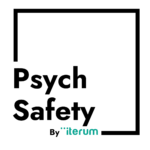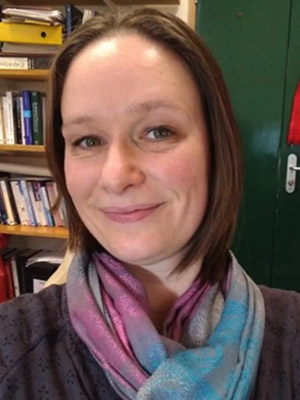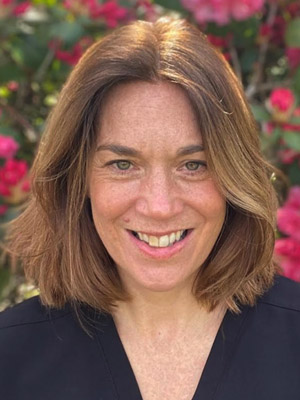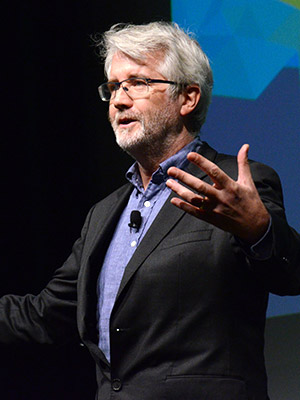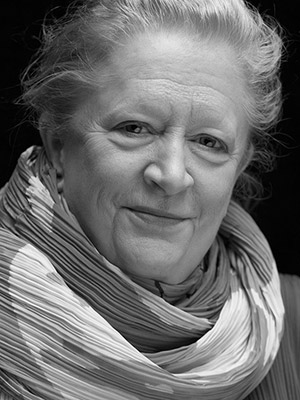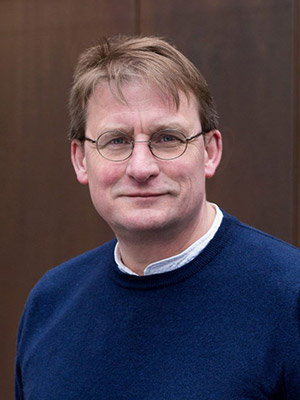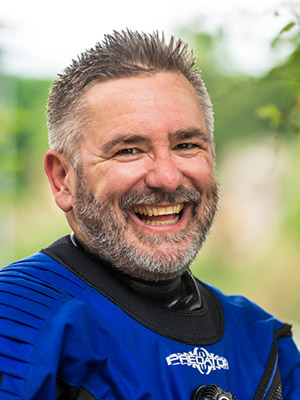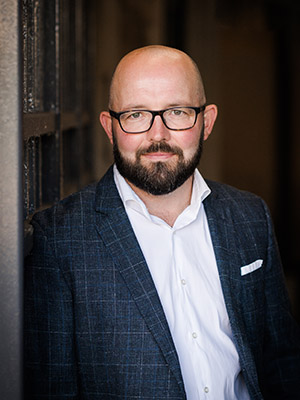
INTERACTIONS 2025: our fourth conference
Explore ideas, discuss the latest research, and share new ways of thinking that help to put us in charge of our destiny – not at the mercy of our nature.
Human dynamics shape everything – especially in complex, safety-critical systems. You’re invited to be part of our sector-leading conversations aiming to transform how we work and connect.
Leave with fresh ideas, brand-new learnings, and a different approach to your everyday interactions.
INTERACTIONS is kindly supported by PsychSafety by Iterum.
Venue: home of the Exeter Chiefs, Sandy Park, EX2 7NN.
The speakers
Colin is a specialist in deep listening, presence, and profound attention, dedicated to creating spaces where individuals unlock their clarity, thinking and creativity. Known as The Listener, he brings over two decades of experience in guiding, facilitating, and coaching, helping people connect more deeply with themselves and others.
His expertise lies in reflective practices that foster both personal and professional growth, enhancing communication and relationships. Through his work, Colin empowers individuals and groups to feel truly seen and heard, unlocking insights and cultivating listening skills that lead to meaningful transformation.
Colin’s approach is informed by extensive personal learning from works on listening, mindfulness, and human development. This depth allows him to craft environments where genuine insights emerge, helping clients access new perspectives and deeper understanding.
Colin is a specialist in deep listening, presence, and profound attention, dedicated to creating spaces where individuals unlock their clarity, thinking and creativity. Known as The Listener, he brings over two decades of experience in guiding, facilitating, and coaching, helping people connect more deeply with themselves and others.
His expertise lies in reflective practices that foster both personal and professional growth, enhancing communication and relationships. Through his work, Colin empowers individuals and groups to feel truly seen and heard, unlocking insights and cultivating listening skills that lead to meaningful transformation.
Colin’s approach is informed by extensive personal learning from works on listening, mindfulness, and human development. This depth allows him to craft environments where genuine insights emerge, helping clients access new perspectives and deeper understanding.
Rita Rae KC (The Honourable Lady Rae) was educated in Lanarkshire in Scotland and after graduating in 1972 with an honours degree in law from the University of Edinburgh she began her career as a solicitor. She quickly rose to the position of partner in a leading Glasgow firm of solicitors. In 1982 she joined the male-dominated Faculty of Advocates in Edinburgh. Her workload as an advocate varied, including children’s cases, high-profile criminal work and she also appeared in the Court of Human rights in Strasbourg. She worked as a Sheriff across Scotland and a temporary High Court Judge before being appointed as a Senator of the College of Justice in 2014. She also served as an Upper Tribunal Judge in immigration and asylum cases; a member and then vice chair of the Parole Board for Scotland; and a member of the Sentencing Commission for Scotland. She retired from her judicial role in June 2020 but continued to sit part-time thereafter.
In June 2019, she was awarded an Honorary doctorate in Laws from the University of Glasgow in recognition of her career and contribution to the legal world. In November 2022 Lady Rae received a Fellowship from New College Lanarkshire. She was privileged to appear on the BBC programme, “Desert Island Discs” in 2024.
Lady Rae has mentored a number of students throughout her career and has a particular interest in supporting those who are less privileged, whether that be through scholarship funding or supporting other charitable projects.
She served as the University of Glasgow’s first female working rector from 2021-2024.
She is currently the Vice Chair of a Glasgow Adoption and Fostering Society (St Margaret’s) and in January 2022 she became the first chair of the Scottish Catholic Safeguarding Standards Agency. Her interests include a love of theatre, classical music and fast cars!"
Rita Rae KC (The Honourable Lady Rae) was educated in Lanarkshire in Scotland and after graduating in 1972 with an honours degree in law from the University of Edinburgh she began her career as a solicitor. She quickly rose to the position of partner in a leading Glasgow firm of solicitors. In 1982 she joined the male-dominated Faculty of Advocates in Edinburgh. Her workload as an advocate varied, including children’s cases, high-profile criminal work and she also appeared in the Court of Human rights in Strasbourg. She worked as a Sheriff across Scotland and a temporary High Court Judge before being appointed as a Senator of the College of Justice in 2014. She also served as an Upper Tribunal Judge in immigration and asylum cases; a member and then vice chair of the Parole Board for Scotland; and a member of the Sentencing Commission for Scotland. She retired from her judicial role in June 2020 but continued to sit part-time thereafter.
In June 2019, she was awarded an Honorary doctorate in Laws from the University of Glasgow in recognition of her career and contribution to the legal world. In November 2022 Lady Rae received a Fellowship from New College Lanarkshire. She was privileged to appear on the BBC programme, “Desert Island Discs” in 2024.
Lady Rae has mentored a number of students throughout her career and has a particular interest in supporting those who are less privileged, whether that be through scholarship funding or supporting other charitable projects.
She served as the University of Glasgow’s first female working rector from 2021-2024.
She is currently the Vice Chair of a Glasgow Adoption and Fostering Society (St Margaret’s) and in January 2022 she became the first chair of the Scottish Catholic Safeguarding Standards Agency. Her interests include a love of theatre, classical music and fast cars!"
I am an Associate Professor of Psychology at the University of Southampton. I teach a module on the Psychology of Attractiveness, to help our students better understand the importance of good interpersonal functioning and the different forms this may take.
My research focuses on the dysfunctional relationships of narcissists and the role of empathy in these troubled relationships. I have explored the consequences of narcissistic behaviour across a wide range of settings, including interactions among strangers, acquaintances, work colleagues, family members, and romantic relationship partners. Our research has shown that narcissists can be empathic though they often choose not to be. By finding ways to make empathy appealing to narcissists, we can help reduce some of the negative experiences for those around them.
I am an Associate Professor of Psychology at the University of Southampton. I teach a module on the Psychology of Attractiveness, to help our students better understand the importance of good interpersonal functioning and the different forms this may take.
My research focuses on the dysfunctional relationships of narcissists and the role of empathy in these troubled relationships. I have explored the consequences of narcissistic behaviour across a wide range of settings, including interactions among strangers, acquaintances, work colleagues, family members, and romantic relationship partners. Our research has shown that narcissists can be empathic though they often choose not to be. By finding ways to make empathy appealing to narcissists, we can help reduce some of the negative experiences for those around them.
Dr Beth Newstead has been a consultant in Emergency Medicine at University Hospital, Plymouth for just over 10 years. During this time, she had had a number of roles including Training Programme Director for the Peninsula Deanery. She was the Service Line Director for the Emergency Department (ED) 2020-2023 during which time she had to manage the Covid-19 pandemic, a very challenged ED and some inherent cultural problems within the organisation.
Following ‘retirement’ from her role as SLD she has taken on new challenges and is now a medical examiner for the Trust. Beth has also done a diploma in Lifestyle Medicine and is now offering educational sessions and health coaching to staff members.
Dr Beth Newstead has been a consultant in Emergency Medicine at University Hospital, Plymouth for just over 10 years. During this time, she had had a number of roles including Training Programme Director for the Peninsula Deanery. She was the Service Line Director for the Emergency Department (ED) 2020-2023 during which time she had to manage the Covid-19 pandemic, a very challenged ED and some inherent cultural problems within the organisation.
Following ‘retirement’ from her role as SLD she has taken on new challenges and is now a medical examiner for the Trust. Beth has also done a diploma in Lifestyle Medicine and is now offering educational sessions and health coaching to staff members.
Since achieving the lowest Year 12 score in the history of his school in 1977, Jason Clarke has been an exhibition designer, a script writer, commercial event and film producer and for a while, Creative Director of Australia’s largest multi-media production company. He’s staged Shakespeare, grand opera, experimental avant-garde theatre and even designed a dolphin show for a major marine park.
He’s developed and taught courses in Logic, Problem Solving and Innovation for Melbourne Business School, Mt Eliza Business School, the Australian School of Entrepreneurship, the Stern Business School of New York and the Ben Gurion Business School of Israel.
But he found his real calling in 2000; as a freelance thinker-for-hire, offering creative and lateral thinking services for organisations struggling to embrace innovation and change or just to solve problems, develop strategy, prioritise or even make decisions.
His clients include just about every kind of enterprise, from plucky little start-ups to national and global corporations, from communities and not-for-profits to State and Local Governments. Today he’s a regular international speaker and one of the most sought-after creative minds in Australia.
But he’ll tell you he’s just a Plumber of the Mind, the guy you go to when your head gets clogged.
Since achieving the lowest Year 12 score in the history of his school in 1977, Jason Clarke has been an exhibition designer, a script writer, commercial event and film producer and for a while, Creative Director of Australia’s largest multi-media production company. He’s staged Shakespeare, grand opera, experimental avant-garde theatre and even designed a dolphin show for a major marine park.
He’s developed and taught courses in Logic, Problem Solving and Innovation for Melbourne Business School, Mt Eliza Business School, the Australian School of Entrepreneurship, the Stern Business School of New York and the Ben Gurion Business School of Israel.
But he found his real calling in 2000; as a freelance thinker-for-hire, offering creative and lateral thinking services for organisations struggling to embrace innovation and change or just to solve problems, develop strategy, prioritise or even make decisions.
His clients include just about every kind of enterprise, from plucky little start-ups to national and global corporations, from communities and not-for-profits to State and Local Governments. Today he’s a regular international speaker and one of the most sought-after creative minds in Australia.
But he’ll tell you he’s just a Plumber of the Mind, the guy you go to when your head gets clogged.
Justin Featherstone is a leadership consultant and expedition leader. He has worked with a variety of public sector and commercial organisations both in the UK and overseas and he specialises in helping people develop compassionate leadership. He also is an adjunct lecturer on leadership at the Universities of Exeter and Llubljana.
A former Major in The Princess of Wales’s Royal Regiment, he deployed on various operations over his eighteen years’ service, including commanding a Company in Southern Iraq in 2004. He left the Army in 2007 and his final posting was as the principal leadership staff officer at the Royal Military Academy Sandhurst.
A keen mountaineer and whitewater kayaker, he has led and participated in over thirty overseas expeditions to the mountains, rivers and rainforests of the world. He was awarded the Military Cross for his actions in Iraq and is a Fellow of the Royal Geographical Society, a Fellow of the Royal Anthropological Institute and a member of the Alpine Club. As a Leadership Fellow of University of Exeter, he has a role supporting the Exeter Centre for Leadership, as well as the wider Business School. He has an interest in researching leadership in traditional communities around the world.
Justin is a qualified Winter Mountain Leader, whitewater kayaking coach and climbing instructor and when not working, is often found relaxing in the wild spaces on his Devon doorstep.
Justin Featherstone is a leadership consultant and expedition leader. He has worked with a variety of public sector and commercial organisations both in the UK and overseas and he specialises in helping people develop compassionate leadership. He also is an adjunct lecturer on leadership at the Universities of Exeter and Llubljana.
A former Major in The Princess of Wales’s Royal Regiment, he deployed on various operations over his eighteen years’ service, including commanding a Company in Southern Iraq in 2004. He left the Army in 2007 and his final posting was as the principal leadership staff officer at the Royal Military Academy Sandhurst.
A keen mountaineer and whitewater kayaker, he has led and participated in over thirty overseas expeditions to the mountains, rivers and rainforests of the world. He was awarded the Military Cross for his actions in Iraq and is a Fellow of the Royal Geographical Society, a Fellow of the Royal Anthropological Institute and a member of the Alpine Club. As a Leadership Fellow of University of Exeter, he has a role supporting the Exeter Centre for Leadership, as well as the wider Business School. He has an interest in researching leadership in traditional communities around the world.
Justin is a qualified Winter Mountain Leader, whitewater kayaking coach and climbing instructor and when not working, is often found relaxing in the wild spaces on his Devon doorstep.
Scott Gould is an author, speaker, and consultant on the subject of engagement. He examines the concept of engagement at a universal level, exploring how people engage with ideas, things, and each other. As a consultant, Scott works with a diverse range of organisations on how they engage their employees, customers, and communities, with clients including the United Nations, UNICEF, Nokia, Radiometer and Microsoft.
Scott Gould is an author, speaker, and consultant on the subject of engagement. He examines the concept of engagement at a universal level, exploring how people engage with ideas, things, and each other. As a consultant, Scott works with a diverse range of organisations on how they engage their employees, customers, and communities, with clients including the United Nations, UNICEF, Nokia, Radiometer and Microsoft.
Dr. Margaret Heffernan produced programmes for the BBC for 13 years. She then moved to the US where she spearheaded multimedia productions for Intuit, The Learning Company and Standard&Poors. She was Chief Executive of InfoMation Corporation, ZineZone Corporation and then iCast Corporation, was named one of the “Top 25” by Streaming Media magazine and one of the “Top 100 Media Executives” by The Hollywood Reporter.
The author of six books, Margaret’s third book, Willful Blindness: Why We Ignore the Obvious at our Peril was named one of the most important business books of the decade by the Financial Times. In 2015, she was awarded the Transmission Prize for A Bigger Prize: Why Competition isn’t Everything and How We Do Better, described as “meticulously researched…engagingly written…universally relevant and hard to fault.” Her TED talks have been seen by over 13 million people and in 2015 TED published Beyond Measure: The Big Impact of Small Changes. Her most recent book, Uncharted: How to map the future was published in 2020. It quickly became a bestseller and was nominated for the Financial Times Best Business Book award, was one of Bloomberg’s Best Books of 2021 and was chosen as the “Medium Best of the Best” business book. She became a member of the Thinkers50 Hall of Fame, in recognition of her lasting impact on management thinking. She is a Professor of Practice at the University of Bath, Lead Faculty for the Forward Institute’s Responsible Leadership Programme and, through Merryck & Co., mentors CEOs and senior executives of major global organizations. She chairs the board of DACS and is a parish councillor.
www.mheffernan.com
Dr. Margaret Heffernan produced programmes for the BBC for 13 years. She then moved to the US where she spearheaded multimedia productions for Intuit, The Learning Company and Standard&Poors. She was Chief Executive of InfoMation Corporation, ZineZone Corporation and then iCast Corporation, was named one of the “Top 25” by Streaming Media magazine and one of the “Top 100 Media Executives” by The Hollywood Reporter.
The author of six books, Margaret’s third book, Willful Blindness: Why We Ignore the Obvious at our Peril was named one of the most important business books of the decade by the Financial Times. In 2015, she was awarded the Transmission Prize for A Bigger Prize: Why Competition isn’t Everything and How We Do Better, described as “meticulously researched…engagingly written…universally relevant and hard to fault.” Her TED talks have been seen by over 13 million people and in 2015 TED published Beyond Measure: The Big Impact of Small Changes. Her most recent book, Uncharted: How to map the future was published in 2020. It quickly became a bestseller and was nominated for the Financial Times Best Business Book award, was one of Bloomberg’s Best Books of 2021 and was chosen as the “Medium Best of the Best” business book. She became a member of the Thinkers50 Hall of Fame, in recognition of her lasting impact on management thinking. She is a Professor of Practice at the University of Bath, Lead Faculty for the Forward Institute’s Responsible Leadership Programme and, through Merryck & Co., mentors CEOs and senior executives of major global organizations. She chairs the board of DACS and is a parish councillor.
www.mheffernan.com
For many years I’ve been researching into and writing about how truth gets manufactured in workplaces, and whose truth gets privileged.
Within the mainstream world of leadership and organizational studies, I’ve worked closely with Professor Megan Reitz, exploring how truth gets spoken to power, how inconvenient (activist) voices get silenced, and what it takes to step away from the comforting familiarity of wilful busyness. Our work in these areas can be found in the Harvard Business Review, Sloan Management Review and in interviews with Brene Brown and Evan Davis – as well as in numerous other publications, research reports and podcast/TED talks.
Our most recent book is ‘Speak Out, Listen Up – How to have conversations that matter’ (FT Publishing, 2024).
More provocative work can be found in my writing with Dr Mark Cole, where we take silence to be an active choice, often an act of resistance, by employees who otherwise find themselves compelled to speak only in ways others decide they should. This contrasts with the widespread assumption that silence is simply passivity and can be ignored (See ‘The Great Unheard: understanding voice and silence in organisations’, Routledge, 2023).
In other think pieces, to be found at www.radicalod.org, we reframe modern leadership practice as a return to an age of dependent feudalism – played out in a variety of forms of enlightened and unenlightened autocracy, wherever whoever has the gold sets the rules.
Underpinning these world views is my long-term engagement with the Ashridge Doctorate and Masters in Organisational Change (see ‘The Change Doctors: reimagining organisational practice’, Eds Kathleen King & John Higgins, Libri, 2013). This draws on social-constructionist and relational perspectives, which repositions inter-dependency as the foundational reality of working life, over the still dominant ideology of sovereign individuality.
It also informs my approach to research and inquiry, which takes seriously what is often hiding in plain sight, such as contradictions between what is espoused and what is practised in organisational life, or which demonstrate the self-interest behind what are presented as ‘objective’ truths about human beings and their organising principles.
For many years I’ve been researching into and writing about how truth gets manufactured in workplaces, and whose truth gets privileged.
Within the mainstream world of leadership and organizational studies, I’ve worked closely with Professor Megan Reitz, exploring how truth gets spoken to power, how inconvenient (activist) voices get silenced, and what it takes to step away from the comforting familiarity of wilful busyness. Our work in these areas can be found in the Harvard Business Review, Sloan Management Review and in interviews with Brene Brown and Evan Davis – as well as in numerous other publications, research reports and podcast/TED talks.
Our most recent book is ‘Speak Out, Listen Up – How to have conversations that matter’ (FT Publishing, 2024).
More provocative work can be found in my writing with Dr Mark Cole, where we take silence to be an active choice, often an act of resistance, by employees who otherwise find themselves compelled to speak only in ways others decide they should. This contrasts with the widespread assumption that silence is simply passivity and can be ignored (See ‘The Great Unheard: understanding voice and silence in organisations’, Routledge, 2023).
In other think pieces, to be found at www.radicalod.org, we reframe modern leadership practice as a return to an age of dependent feudalism – played out in a variety of forms of enlightened and unenlightened autocracy, wherever whoever has the gold sets the rules.
Underpinning these world views is my long-term engagement with the Ashridge Doctorate and Masters in Organisational Change (see ‘The Change Doctors: reimagining organisational practice’, Eds Kathleen King & John Higgins, Libri, 2013). This draws on social-constructionist and relational perspectives, which repositions inter-dependency as the foundational reality of working life, over the still dominant ideology of sovereign individuality.
It also informs my approach to research and inquiry, which takes seriously what is often hiding in plain sight, such as contradictions between what is espoused and what is practised in organisational life, or which demonstrate the self-interest behind what are presented as ‘objective’ truths about human beings and their organising principles.
Gareth Lock is both curious and a curiosity. He has a diverse background covering military aircrew, flight trials officer, research advisor, systems engineer, human factors trainer, published author, entrepreneur, and a pracademic. He has worked in multiple high-risk domains outside the one he’s most well-known for, diving. His passion is provocatively identifying and joining (hidden) dots, translating ideas into practice, with the goal of transforming teams and unlocking their potential through highly experiential, reflective, and sometimes uncomfortable, learning programmes.
Gareth Lock is both curious and a curiosity. He has a diverse background covering military aircrew, flight trials officer, research advisor, systems engineer, human factors trainer, published author, entrepreneur, and a pracademic. He has worked in multiple high-risk domains outside the one he’s most well-known for, diving. His passion is provocatively identifying and joining (hidden) dots, translating ideas into practice, with the goal of transforming teams and unlocking their potential through highly experiential, reflective, and sometimes uncomfortable, learning programmes.
Elizabeth Stokoe is Academic Director of Impact at The London School of Economics and Political Science and a professor in the Department of Psychological and Behavioural Science. She conducts conversation analytic research to understand how talk works – from first dates to medical communication and from sales encounters to crisis negotiation. She has worked as an industry fellow at technology companies Typeform and at Deployed. In addition to academic publishing, she is passionate about science communication, and has given talks at TED, Google, Microsoft, and The Royal Institution, and performed at Latitude and Cheltenham Science Festivals. Her books include Talk: The Science of Conversation (Little, Brown, 2018) and Crisis Talk (Routledge, 2022, co-authored with Rein Ove Sikveland and Heidi Kevoe-Feldman). Her research and biography were featured on BBC Radio 4’s The Life Scientific. During the Covid-19 pandemic she participated in a behavioural science sub-group of the UK Government’s Scientific Advisory Group for Emergencies (SAGE) and is a member of Independent SAGE behaviour group. She is a Wired Innovation Fellow and in 2021 was awarded Honorary Fellowship of the British Psychological Society.
Elizabeth Stokoe is Academic Director of Impact at The London School of Economics and Political Science and a professor in the Department of Psychological and Behavioural Science. She conducts conversation analytic research to understand how talk works – from first dates to medical communication and from sales encounters to crisis negotiation. She has worked as an industry fellow at technology companies Typeform and at Deployed. In addition to academic publishing, she is passionate about science communication, and has given talks at TED, Google, Microsoft, and The Royal Institution, and performed at Latitude and Cheltenham Science Festivals. Her books include Talk: The Science of Conversation (Little, Brown, 2018) and Crisis Talk (Routledge, 2022, co-authored with Rein Ove Sikveland and Heidi Kevoe-Feldman). Her research and biography were featured on BBC Radio 4’s The Life Scientific. During the Covid-19 pandemic she participated in a behavioural science sub-group of the UK Government’s Scientific Advisory Group for Emergencies (SAGE) and is a member of Independent SAGE behaviour group. She is a Wired Innovation Fellow and in 2021 was awarded Honorary Fellowship of the British Psychological Society.
Paul Stretton is an academic, trainer, author & speaker. He has been supporting organisations in high risk industries for over a decade in their approaches to safety. Paul is a specialist in applying complexity science and new views of safety to shape organisational culture and performance. His approach challenges existing models for safety performance and embraces an understanding of complex systems.
He has worked across high-risk industries developing safety leadership and culture change processes and is currently working with a number of NHS Trusts. He has written a series of papers published in international academic literature such as the Journal of Patient Safety and Risk Management, and the British Journal of Healthcare Management. Recently, he has been working with NHS Education Scotland developing a guide to support implementing a Just Culture. His book, Quantum Safety was published in 2022.
Paul Stretton is an academic, trainer, author & speaker. He has been supporting organisations in high risk industries for over a decade in their approaches to safety. Paul is a specialist in applying complexity science and new views of safety to shape organisational culture and performance. His approach challenges existing models for safety performance and embraces an understanding of complex systems.
He has worked across high-risk industries developing safety leadership and culture change processes and is currently working with a number of NHS Trusts. He has written a series of papers published in international academic literature such as the Journal of Patient Safety and Risk Management, and the British Journal of Healthcare Management. Recently, he has been working with NHS Education Scotland developing a guide to support implementing a Just Culture. His book, Quantum Safety was published in 2022.
Latest
Things of interest to us, our events and client industries.
Paul Stretton and the Philosophical Breakfast Club
February 27, 2024Away from the conferences The Philosophical Breakfast Club have been working hard connecting with amazing individuals and leaders in their field. Paul Stretton https://www.quantum-safety.com/quantum-safety is one such person with whom it has been a pleasure … Read More
Announcement: Martin Bromiley and LEADING CHANGE
May 3, 2021You may, or may not, be aware from his social media posts that Martin has recently been unwell. Thankfully he is recovering well and I am sure you will all echo our thoughts in wishing … Read More



